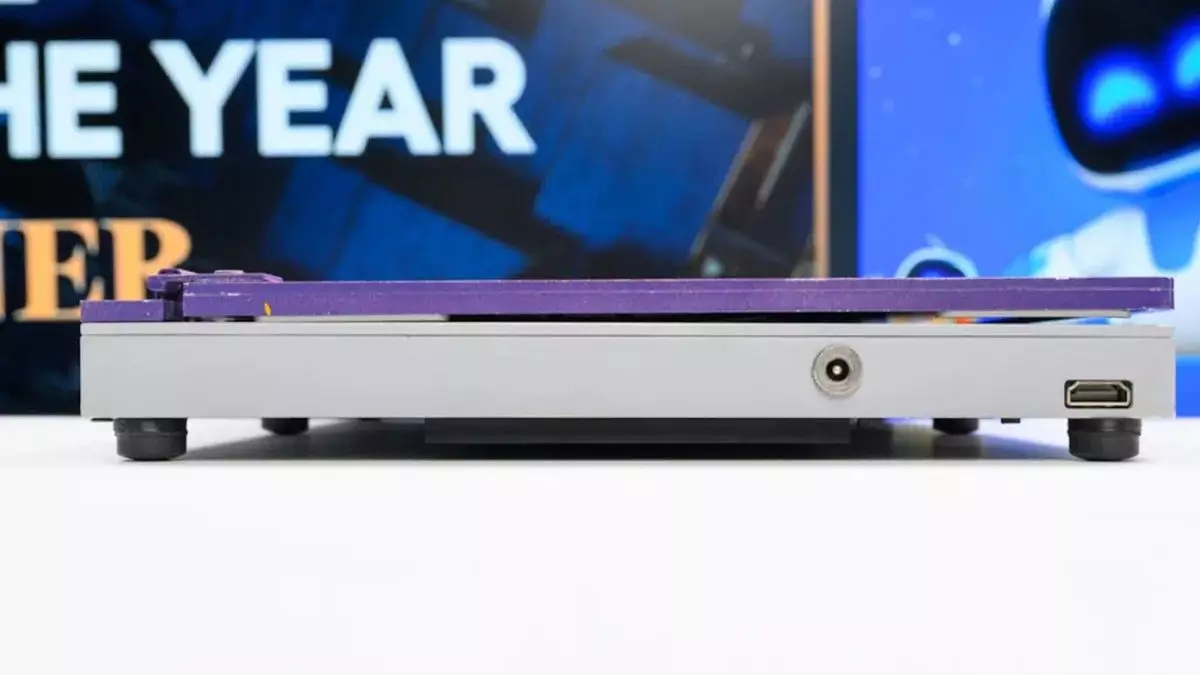In the dynamic world of gaming technology, innovation often takes unexpected turns; however, few products epitomize this better than the BBook AI Original Edition. Crafted as an ambitious mod of the PlayStation 5, this 3D-printed monstrosity demonstrates an intriguing blend of passion and impracticality. At over 31 mm thick and weighing approximately 9.5 lbs (4.3 kg), this so-called gaming laptop is anything but portable, leaving many to question its status in the era of slim gaming devices and handheld consoles.
To put the dimensions into perspective, the BBook AI stands tall against even the heaviest of gaming laptops currently on the market. Competing products such as the Gigabyte Aorus 17X and the MSI Titan 18 HX are notorious for their excessive weight, yet this mod takes the cake, metaphorically speaking. The dimensions and weight suggest a design philosophy that prioritizes nostalgia and aesthetic appeal over functionality and ease of use. For gamers seeking a truly mobile experience, the BBook AI is an alarming departure, resembling a home console dressed as a laptop rather than a viable portable gaming alternative.
The question of what justifies such bulk leads us into the hardware specifications of the BBook AI. At first glance, users are treated to a sizable 17-inch 4K IPS panel. While the visual potential is exciting, the display is limited to a 60 Hz refresh rate—an unexpected limitation for a device marketed as a gaming laptop. To add to the confusion, the BBook AI’s design leverages the same hardware as a standard PlayStation 5, which, despite being powerful, raises skepticism regarding the justification for the $2,748 price tag.
For comparison, most modern gaming laptops achieve some level of performance and portability, even if they’re equipped with smaller screens and diminished specs. The absence of a battery, a critical component for a device labeled a laptop, greatly diminishes the BBook AI’s appeal. The designers have effectively created a product that can only be described as a stationary console with a keyboard, which challenges the fundamentals of what consumers expect from portable gaming hardware.
Beyond the perplexing combination of weight and hardware, the operational noise of the BBook AI raises eyebrows. At 71.3 decibels, the sound emitted while running is comparable to that of a hairdryer, a status that raises questions regarding its suitability for stealthy late-night gaming sessions. It’s essential for any gaming setup to consider the user experience, and the sheer volume of this device could make it impractical in a shared living space. Gamers might find themselves reassessing their desire for immersion as loud fan noises disrupt the atmosphere that envelops competitive matches or story-driven campaigns.
While the BBook AI Original Edition is undoubtedly a unique piece of craftsmanship, its artisanal nature doesn’t seem to warrant the steep price point. Beyond its clunky aesthetics and questionable performance metrics lies a layer of appealing craftsmanship, yet most gaming enthusiasts might hesitate to pay a premium for a device that fails to fulfill the basic utility of its classification. For the same cost, consumers can find a myriad of capable gaming laptops that provide a superior balance of performance, portability, and practicality.
Ultimately, the BBook AI Original Edition presents a fascinating curiosity within the gaming community. It stands as a celebration of creative endeavors but simultaneously criticizes the very essence of portable gaming. While some may appreciate its retro appeal and artistic ambition, most gamers will likely steer clear of a product designed more for display than daily use. The conversation around the BBook AI serves as a reminder that in a rapidly evolving tech landscape, utility and user experience should never be overshadowed by novelty and excess. In the end, one has to wonder: is there a market for such an extravagant and impractical fusion of nostalgia and laptop design? Only time will tell.

